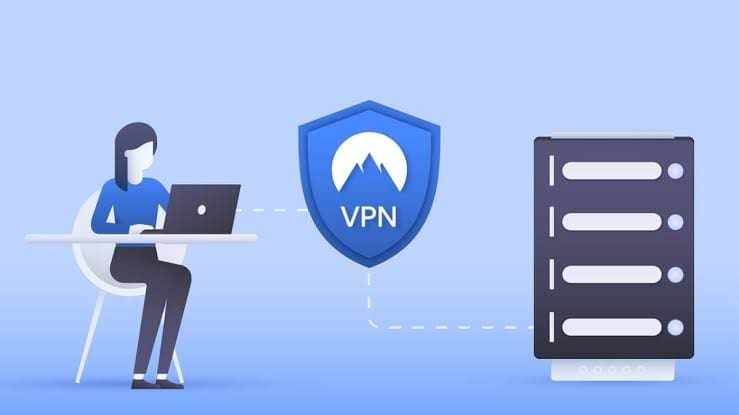Introduction
In today’s digital age, privacy has become a significant subject for individuals and businesses alike. With the increasing hazard of data breaches and cyberattacks, it has become more critical than ever to protect our personal facts. This is where Virtual Private Networks (VPNs) come into play. In this text, we can first discover the idea of privacy and how internetprivatsphare VPNs can protect your private facts from prying eyes. So, let’s dive in and apprehend the significance of retaining privateness in our online sports.
Why does privacy matter?
Privacy is a fundamental right that every person ought to have, both offline and online. In the virtual realm, our non-public facts are constantly being gathered, tracked, and analyzed with the aid of diverse entities, including governments, internet service providers (ISPs), and even advertisers. This invasion of privacy can lead to numerous troubles, which include identification robbery, unauthorized access to sensitive information, and the compromise of personal protection.
Maintaining privacy is critical for numerous reasons. Firstly, it ensures the safety of our non-public records, together with financial information, addresses, and social security numbers. Secondly, privacy permits individuals to express their minds and evaluations freely without the concern of surveillance or censorship. Lastly, privacy fosters consideration in online interactions, which is critical for constructing strong relationships and accomplishing commercial enterprise transactions.
Understanding VPNs
A VPN, or Virtual Private Network, is a technology that provides a secure and personal connection over the internet. It creates a virtual tunnel between your device and the internet, encrypting all the information that passes through it. When you hook up with a VPN server, your net visitors are routed through this encrypted tunnel, making it hard for anyone to intercept or get right of entry to your personal statistics.
VPNs work by overlaying your IP address, which is a unique identifier assigned to your device when connecting to the net. By replacing your IP address with the address of the VPN server, VPNs help anonymize your online activity and protect your privacy. Additionally, VPNs encrypt your statistics, making them unreadable to all and sundry who try to intercept them, such as hackers and government surveillance businesses.
How VPNs Protect Your Personal Data
Privacy First: How Do VPNs Protect Your Personal Data from Prying Eyes? When you operate a VPN, your private records are protected against prying eyes in more than one way. Let’s discover some of the important mechanisms that VPNs use to defend your privacy:
- Encryption
Encryption is a vital thing in the VPN era. It involves converting your information into an unreadable layout using complex algorithms. When you connect with a VPN, all your internet traffic is encrypted before it leaves your device. This encrypted record is then transmitted through the VPN server, ensuring that even though it’s intercepted, it can’t be deciphered without the encryption key.
- Anonymity
One of the biggest blessings of using a VPN is the anonymity it presents. By protecting your IP address and assigning you a new one from the VPN server, VPNs make it tough for anyone to trace your online sports returned on your device. This anonymity provides an extra layer of safety, preventing malicious entities from monitoring your net traffic or figuring out your location.
- Secure Connection
VPNs create a stable connection between your device and the internet by organizing a digital tunnel. This tunnel encrypts your records and prevents unauthorized access. Whether you are using public Wi-Fi at a coffee shop or gaining access to the net from your property network, a VPN guarantees that your connection remains stable, safeguarding your private data from potential threats.
four. Bypassing Restrictions
Another benefit of VPNs is their potential to bypass restrictions imposed by governments, ISPs, or other businesses. By connecting to a VPN server positioned in a specific U.S. location, you may access content material that may be blocked or limited to your modern location. This feature is specifically useful while traveling or when you need to get right of entry to location-specific offerings or web sites.
Frequently Asked Questions (FAQs)
Q1: Can VPNs completely cover my online sports?
Yes, VPNs can efficiently hide your online activities by encrypting your facts and covering your IP address. However, it’s vital to be aware that VPNs are not a foolproof solution. While they offer an excessive level of privacy and protection, other factors, such as internet site monitoring equipment or malicious software, can still compromise your anonymity.
Q2: Are all VPNs equally secure?
Not all VPNs are the same in terms of security. Some VPNs may log your online activities or share your records with 0.33 events, compromising your privacy. It’s important to pick a good VPN carrier that has strict no-logging coverage and employs strong encryption protocols to ensure the best degree of protection for your private records.
Q3: Can I use a VPN on my mobile devices?
Yes, most VPN vendors offer dedicated apps for cell devices, including smartphones and tablets. These apps assist you in hooking up without problems with VPN servers and guarding your statistics while browsing the internet on your mobile device. It’s recommended to use a VPN on all your gadgets to maintain consistent privacy across systems.
Q4: Are VPNs legal?
In most nations, the use of a VPN is illegal. However, it is vital to note that the legality of VPNs varies from United States to United States. Some nations may have regulations or guidelines concerning VPN utilization, so it’s essential to get yourself up to speed with the legal guidelines of your jurisdiction before using a VPN.
Q5: Can I use a VPN to access streaming services or skip geolocation regulations?
Yes, VPNs may be used to gain access to streaming offerings and bypass geolocation regulations. By connecting to a VPN server in a unique U.S., you can mask your vicinity and get right of entry to content that can be limited o toyour vicinity.owever, it’s crucial to make certain that the VPN service you pick helps the specific streaming provider you want to get access to.
Q6: Do free VPNs provide the same level of privacy and protection as paid ones?
Free VPNs might also offer restrained privacy and safety as compared to paid VPN offerings. Many free VPN carriers generate revenue by displaying commercials or selling user facts that could compromise your privacy. Paid VPNs typically offer extra-robust security capabilities, better encryption protocols, and a strict no-logging policy.
Conclusion
In conclusion, privacy is a fundamental aspect of our digital lives, and protecting our non-public facts from prying eyes is of utmost significance. VPNs play a critical role in making sure privacy first by means of encrypting our information, presenting anonymity, establishing secure connections, and bypassing restrictions. By knowing the advantages of VPNs and choosing a dependable provider, we are able to take control of our online privacy and defend our private information from unauthorized access. So, include the electricity of VPNs and make privacy a priority for your virtual adventure.



































